Global Competency Development
Global competence is defined as a combination of knowledge, skills, attitudes, and values, encompassing four capacities, which are strongly interdependent and overlapping:
- The capacity to examine issues and situations of local, global, and cultural significance (e.g., poverty, economic interdependence, environmental risks, conflicts, cultural differences, and stereotypes)
- The capacity to understand and appreciate different perspectives and the world views of others
- The capacity to establish positive interactions with people of different national, ethnic, religious, social, or cultural backgrounds, and gender identities
- The capacity to formulate responses to promote a more equitable, sustainable, and peaceful world
Adapted from PISA, 2018
Why do we need global competence?
Global competence is the toolkit that engaged citizens need to address and respond to the world's social, political, economic, and environmental challenges. Much of this work is accomplished collaboratively with people from local communities and distant regions, requiring an understanding of the interdependent nature of global issues and a willingness to work across cultural differences.
Global competence can also boost employability. Effective communication and appropriate behavior within diverse teams are keys to success in many jobs, and they will remain so as technology continues to make it easier for people to connect across the globe (British Council, 2013).
Learning about the issues confronting the world and building relationships with people of different backgrounds adds purpose, meaning, and joy to our lives.
Global Competency Development Ideas
The following activities are recommended to students, staff, and faculty, interested in exploring world cultures, examining issues of global significance, and interacting with people from diverse linguistic and cultural backgrounds.
The rich cultural resources of Seattle and Seattle Colleges are sure to provide opportunities to expand intercultural awareness and reflection through the following activities:
- Attend an event about a gender or sexuality issue
- Attend an event about a global health or sustainability issue
- Attend an event about a social or economic issue
- Attend an international film, theater, or book event
- Attend a religious service or a cultural ritual
- Participate in community service
- Try an international cuisine
- Visit a museum or cultural site
Suggestions for deepening the experience:
- Join small groups comprised of other students, staff, and faculty
- Choose four or more activities in which to participate
- Meet in a group to share observations and learning from activity
- Submit a reflection of your development
Note: Participating in these activities does not imply global competence, as it is not a fixed or finite set of skills and knowledge, but a lifelong process. Rather, these recommendations are made to help individuals cultivate the capacities that are critical for lifelong global learning. For more information and resources, contact Global@seattlecolleges.edu.
Facilitating Intercultural Learning
Facilitating Intercultural Learning is a 12-week professional development program designed to help people working in or around higher education integrate intercultural learning into their courses, programming, or other work. It is developed and led by Tara Harvey, Ph.D., of True North Intercultural, LLC. This document provides an overview of the learning outcomes, program components, and pricing of the program. If you have any questions, please contact tara@truenorthintercultural.com. More information about the Facilitating Intercultural Learning program is available at http://www.truenorthintercultural.com/facilitating-intercultural-learning.
Intercultural Development Inventory (IDI)
Faculty, staff, and students may also find the Intercultural Development Inventory (IDI) assessment to be an excellent tool in building intercultural competence and achieving diversity and inclusion goals.

